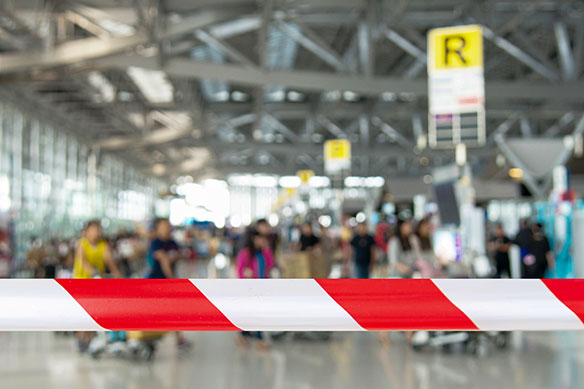
Looking for the certainty to move forward
BRETT WALKER
The less control industry has over its environment, the greater the uncertainty, the greater the risk and ultimately, the more precarious its present and future state. Businesses know it. Investors know it. Markets rise and fall by it… and our government knows it too.
Over the last 5 months, our governments, both federal and provincial have elevated public and private concern for the virus and enacted measures to mitigate its transmission and affects.
We can all be proud of that, and we should be no less vigilant going forward. However, it’s now time we worked equally hard to strike a balance between the health and economic well-being of our nation. This is a time to leverage both public and private resources to achieving even greater success, not less.
This isn’t a plea for governments to open borders; it’s a plea for governments to provide two things our industry desperately needs to endure the current border closure and work stoppage.
#1 Clear and concise criteria
The government must make known any criteria for easing of travel restrictions and reopening of borders. The criteria should serve none other than public health of but divulging, clearly and concisely, any metrics that will not only serve the public better but immensely help industry forecast and plan for recovery.

Brett Walker
Having not disclosed any epidemiological indicators or any other criteria for enabling recovery, the government has both abated any recovery for the travel industry and invigorated the public’s magnification and fearmongering against any reopening.
This should be expected.
It has been 5 months since the borders were closed and our government has been absolutely mum on any reopening.
So now more than ever, it’s time for our government to lead the public discourse. It must provide facts to its constituents, the public, business and all other stakeholders that can serve as a beacon going forward and hasten any recovery.
Once the criteria is made known, public and private resources can be deployed to vet travellers based on origin, transit, destination or any number of biometrical measures as opposed to simply ruling everyone out.
This is a more science-based and tactical approach. Such criteria are the levers employed by the European Union, including Italy, which now has amongst the lowest percent positive (based on testing) in Europe.
Furthermore, whatever eligibility or efficacy may be required for testing — our industry and the public are better served knowing that too.
We must not let border issues become political dogmas. Decisions governing borders should always be based on national interests and, in this case, public health.
Yet, what’s keeping the government from disclosing any criteria for easing of travel restrictions and reopening?
Do they not know?
Are Canadians’ concerns or our experience that different from other countries?
The government’s inability or unwillingness to provide information, the parameters of which best serve public health, has hamstrung our industry’s ability to recover and could cripple it.
Our industry is integral to Canadian economy, generating billions of dollars and tens of millions, if not hundreds of millions of dollars of tax inputs. Millions of Canadians work in tourism related industries and according to Statistics Canada the tourism share of GDP is 1.7%. Yet we have not been provided with the most fundamental information the industry needs to survive.
#2 Need to extend the Canadian Enhanced Wage Subsidy (CEWS)
With our industry at a complete standstill, it’s critical the Canadian Enhanced Wage Supplement be extended beyond its current expiration. Even after any restart, it will take months to realize any revenue from advance payments and could be years before the industry achieves any sustainable level.
Without CEWS, the work stoppage, along with no horizon for recovery, will decimate corporate liquidity and any leverage to get it. Unleveraged companies will be left with only one option – preserving cash at any cost. Industry will have no choice but the cut costs even further. As staffing is by far one of the single greatest costs in our industry it will endure the greatest pressure to contain and control.
Cutting staff obviously has huge personal and social costs, but also important are the off-the-balance sheet costs associated with any loss of human resources and intellectual knowledge. At a time when our industry needs human capital more than ever, we’ll be without it.
The CEWS program bolstered our industry when we needed it most. It’s still needed and will be well into the next year. To this end, CATO will continue to lobby governments and insure they recognize our industry’s unique circumstances and frailties.
Our plea to governments: Extend CEWS beyond its current expiration and through March of 2021.


